Research
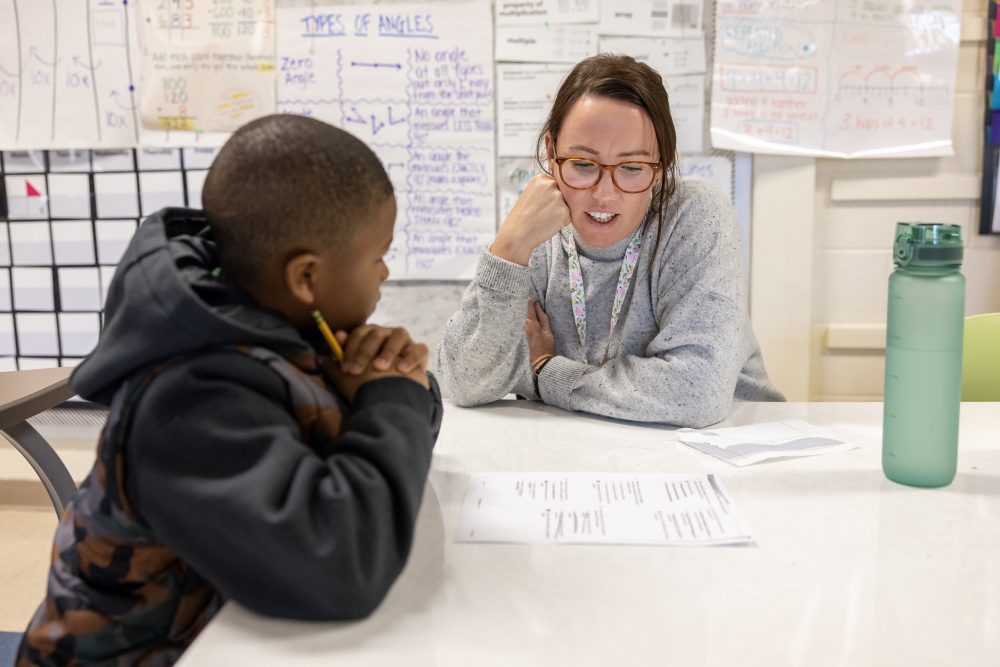
Cato College of Education is dedicated to research that will transform education at every level, from individual learners at the local level up to policy studies and comparative education on an international scale.
Even before UNC Charlotte was named a top tier (R1) research institution, the Cato College of Education, in many ways, already performed like a college at an R1 institution. The customized radar graph below speaks to the research productivity of faculty in the Cato College of Education in comparison with faculty in colleges of education at public R1 institutions across the country. As illustrated in the graph, our faculty are performing extremely well. For example, with respect to the total number of published articles, we are performing at the 80th percentile. In other words, we are performing as well, or better than 80 out of every 100 colleges of education at public R1 institutions. With respect to faculty with a published book, we are at the 90th percentile. Equally impressive, in 2023-2024, faculty and staff in the Cato College of Education received $13.78M in external funding spread across 45 awards, the largest amount of external funding received by any college on campus that year. In fact, in two of the last three years, faculty and staff in the Cato College of Education have received more external funding than any other college on campus.
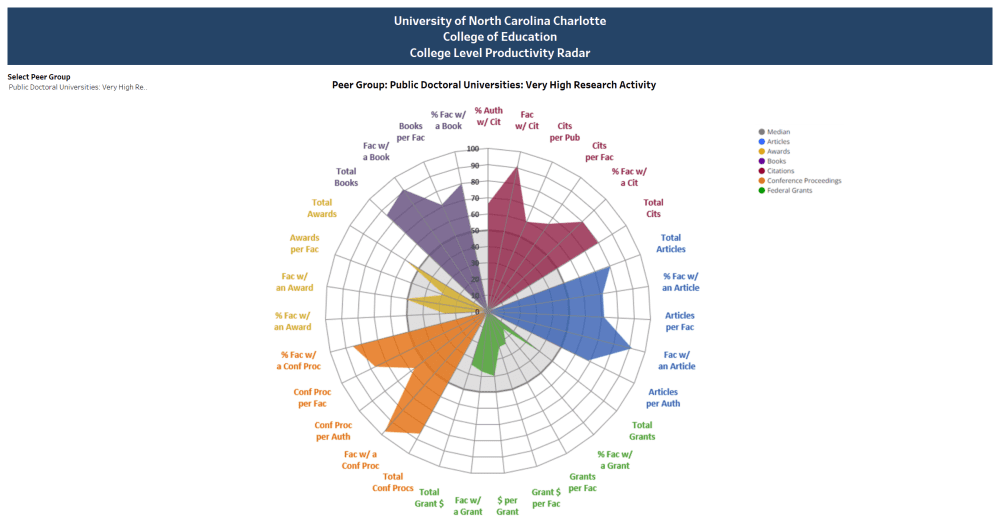
Research highlights
When the Mebane Foundation, a North Carolina nonprofit organization and stalwart in early literacy, sought education leaders to continue its legacy, it believed in the direction of the Cato College of Education. The result is an endowment of up to $23 million, one of the largest in UNC Charlotte’s history, to establish the Mebane Early Literacy Center, a future hub for literacy education in North Carolina and beyond.
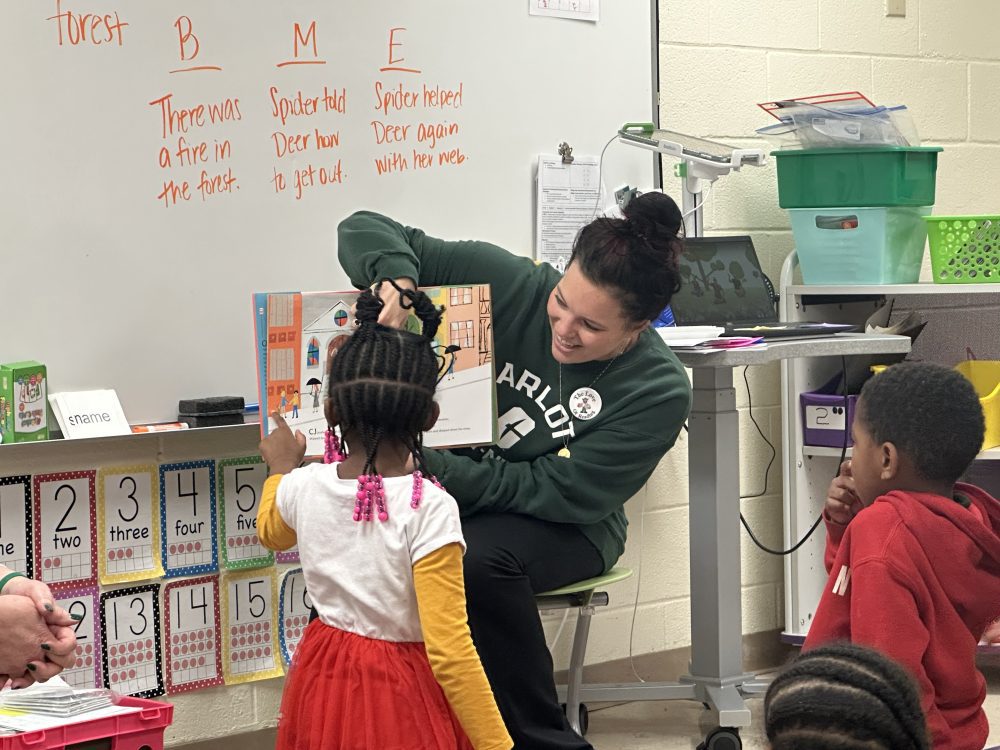
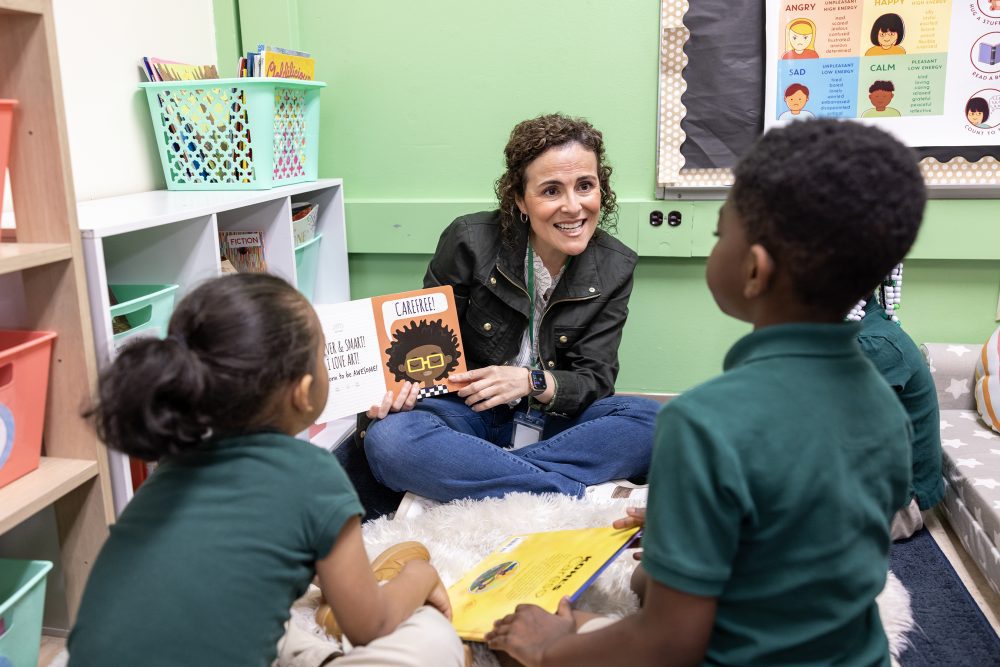
The North Carolina Read to Achieve Program, codified by the North Carolina General Assembly, outlines the “goal of the state is to ensure that every student read at or above grade level by the end of third grade and continue to progress in reading proficiency so that he or she can read, comprehend, integrate and apply complex texts needed for secondary education and career success.” Discover how faculty and students across Cato College are working to better literacy education, improve and better implement the science of reading curriculum, and prepare teachers to help their students reach this goal.
Our interests don’t only lie in literacy, though. Cato College also has research centers dedicated to STEM education and educational measurement & evaluation, whose work shapes the emerging dialogues around these topics and directly impacts our local communities. Learn more about how we connect research to community, like CSTEM’s student development programs or CEME’s Early Educator Support program.

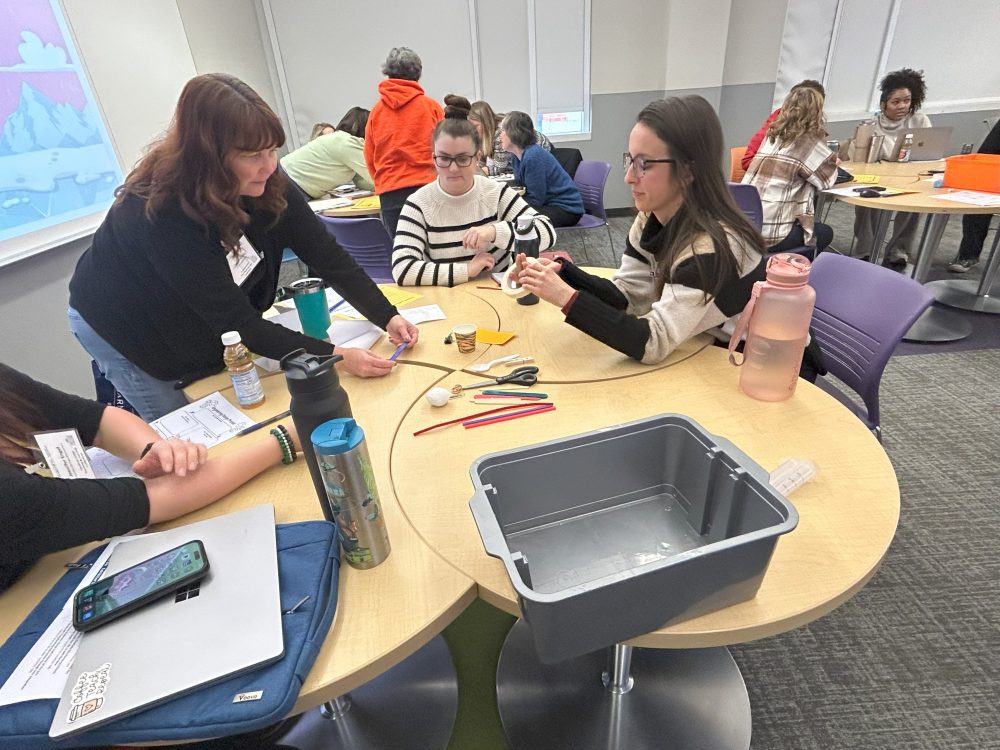
Our college also has faculty working on some of the largest platforms in education, like presenting to the Department of Education on higher and continuing education research and earning grants from North Carolina Dept. of Public Instruction for school counselor education and retention, among others.
Research shows that principals are a leading factor in a school’s success. Their role is instrumental not only for student learning and attendance but also key to teacher satisfaction and retention. To build the best-prepared principals for our community, UNC Charlotte and Charlotte Mecklenburg Schools created the Aspiring High School Principals Program, which recruits, trains and supports prospective principals to serve in the CMS system. Cato College was recently awarded another five-year grant to support hosting the NC Principal Fellows Program at UNC Charlotte.
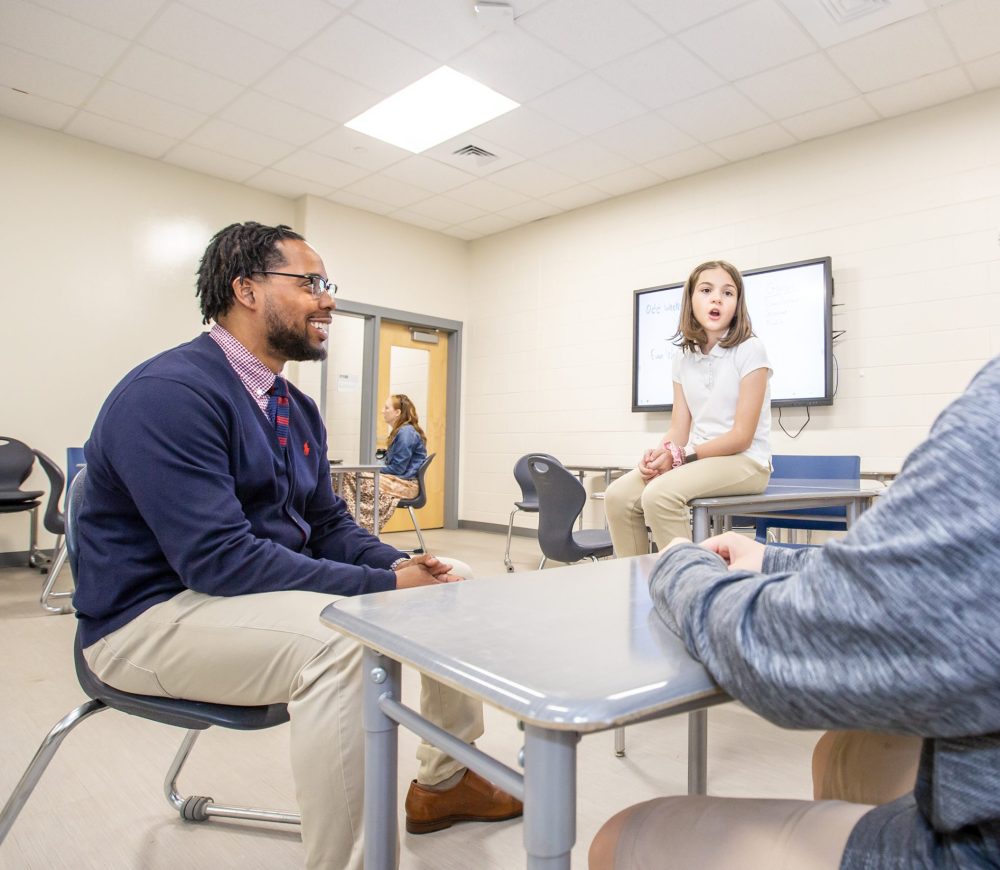
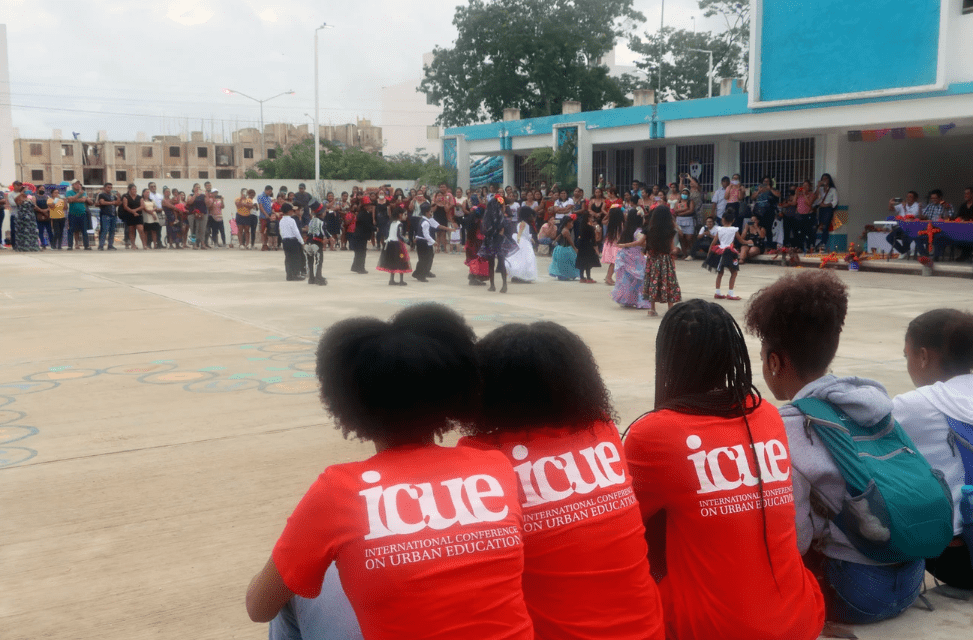
Cato College is home to the Urban Education Collaborative, which not only hosts the International Conference on Urban Education biannually, but also helps direct research interests of faculty across our disciplines, including uncovering and plotting a path to boost the underrepresentation of Black women in STEM fields and pinpointing the importance of school counselors in creating social change in their schools.
Our Special Education & Child Development faculty are also prolific, with Dr. Catherine Fowler in the National Technical Assistance Center on Transition: The Collaborative having the largest amount of active funding of any Charlotte faculty member. NTACT:C assists state agencies and community partners in delivering effective services and instruction for secondary students and out-of-school youth with disabilities. SPCD faculty are also earning grants and winning awards for research in emotional and behavioral health, inclusive practices for students with disabilities, and more.
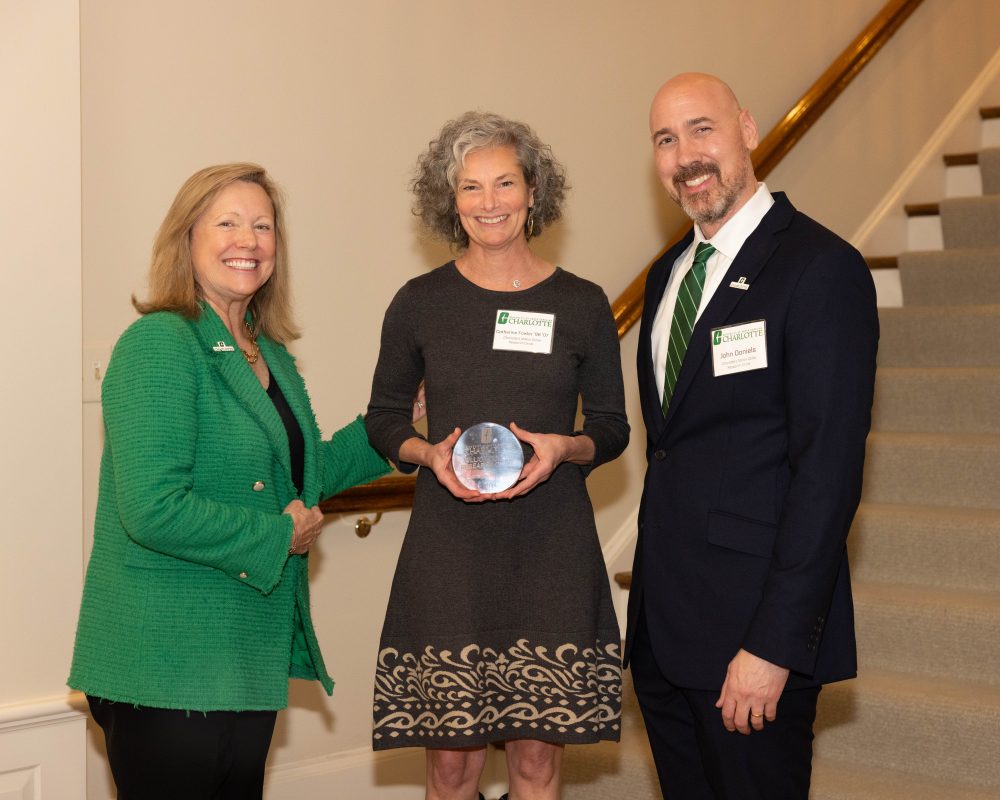

Cato College is also the proud recipient of three Teacher Quality Partnership Grants from the U.S. Department of Education, partnering with five different counties. Our latest is with Union and Gaston Counties, recruiting and retaining teachers into hard-to-staff positions. Teacher candidates complete a customized residency program that leads to initial licensure and offers full tuition coverage.